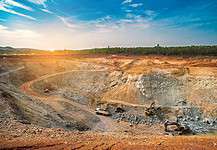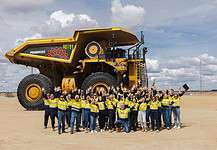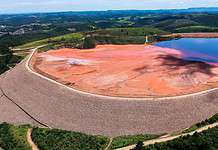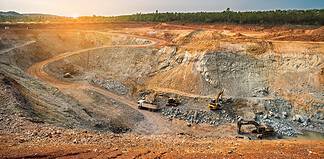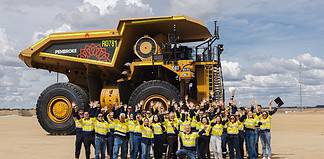A 15-year court battle has ended with WA’s Banjima indigenous group winning a Native Title claim for more than 10,000 square kilometres of Pilbara land.
The claim was first lodged in 1998 and went to litigation with the state in 2011. In late August, the Federal Court decided in favour of the Banjima people, awarding them the rights for land stretching east from Tom Price to Newman, around the Karijini National Park.
The group’s rights will co-exist with iron ore mining tenements held by BHP Billiton, Rio Tinto, Hancock Prospecting and Fortescue Metals Group. The decision would not overrule the rights
granted to these companies by mining tenements or pastoral leases, but could result in some changes via negotiations.
Banjima elder Alec Tucker said the group had been looking forward to the decision for a long time.
“We know it’s Banjima country. It’s my grandfather’s country, my father’s country. I think the old people would be happy about [the outcome],” he said.
Yamatki Marpla Aboriginal Corporation chief executive Simon Hawkins told media he was disappointed that it took the WA Government so long to make a decision.
“It sort of doesn’t make much sense when you’ve got companies that want to participate with the Traditional Owners and yet their own state government wants to litigate, and litigate hard, and
obviously slow down the progress of Native Title in Western Australia,” he said the decision.
However, he said could be useful in influencing “other claims in the Pilbara which have been stalled”.
Rio Tinto had previously entered ‘claim wide’ or ‘country wide’ agreements covering the traditional country of the Eastern Guruma, Kuruma Mathudunera, Ngarlawangga, Ngarluma, Nyiyaparli, Puutu Kunti Kurruma and Pinikura, Yinhawangka and Yindjibarndi Traditional Owner groups, and was in the process of negotiating a similar agreement with the Banjima people.
“Agreements provide recognition of Native Title rights and interests of Traditional Owner groups while securing the ongoing operations and expansion of our iron ore business in Western Australia,” Rio Tinto stated.
“They also provide monetary and non-monetary intergenerational benefits for local communities and Traditional Owner groups.”
Native Title win set to influence stalled claims
Advertisement


